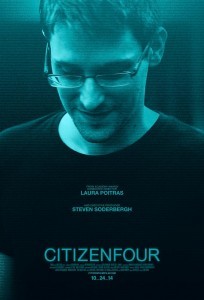Randal Rauser's Blog, page 162
January 13, 2016
In my next debate I’ll be defending … atheism
Back in December I emailed Justin Brierley (host of Unbelievable) to propose a “devil’s advocate” debate show in which the Christian defends atheism and the atheist defends Christianity. Justin got back to me a couple days ago and suggested we record this Friday. Granted the timing isn’t ideal (in the last two days I delivered nine lectures at Oklahoma Baptist University; my semester starts on Monday; I’m volunteering at a swim meet Fri-Sun.), but I’m always up for a challenge.
So this Friday I’ll be defending atheism. And my esteemed atheist opponent who will defend theism/Christianity? Michael Ruse! I’m especially pleased at that since I’ve long been an admirer of Ruse, both in terms of his scholarship and his refreshing, irenic disposition.
As I count them up, I realize that this will be my fifth appearance on Unbelievable. I have previously been on with Alom Shaha, Hemant Mehta, John Loftus, and Ralph Jones.
But this time will be unique insofar as I’ll be defending a view I don’t hold.
And why would I do that? Easy. There’s no better way to deepen your own views and develop empathy with others than to go through the exercise of defending a position you don’t hold.
In addition, while I have participated in many debates, I have long had deep misgivings about the tendency of the debate format to entrench people into partisan positions rather than encouraging a thoughtful exchange of ideas. Switching things up with a devil’s advocate approach is a way of culture-jamming the standard debate.
I assume the show should be available in a week or two … so stay tuned.
January 10, 2016
Read Chapter 1 of Is the Atheist My Neighbor?
It’s been awhile since I talked about my book Is the Atheist My Neighbor? That’s the same book that received this stellar endorsement from J.L. Schellenberg who is perhaps the leading atheist philosopher of religion in the world today. Schellenberg wrote:
“There are some whose way of following the first of the great commandments has, in the matter of nonbelief, meant violating the second. In this brief and lively but remarkably full and acute discussion, Rauser shows the way out of this problem. Impressively fair, and writing not perfunctorily but with feeling, he has found a way to express genuine neighborliness both to atheists like me and to Christians who struggle to reconcile love and loyalty.”
I’m writing today to let you know that if you haven’t read the book yet, you can download a press sheet that includes the book’s introduction and the first chapter. And if you like what you’re reading, please pass it on and consider buying a copy. Here it is:
Rauser, Atheist as Neighbor Excerpt
January 9, 2016
Apologetics and the Flying Spaghetti Monster
Next week I’ll be delivering a series of four lectures at Oklahoma Baptist University with the following titles:
(1) “What is the Flying Spaghetti Monster and why should I care?”
(2) “God, Meaning, and Life on this Pale Blue Dot”
(3) “Christian Faith in the Graveyard of Dead Gods”
(4) “God, Faith, and the Myth of the Freethinker”
I’ll also be delivering an evening public lecture on the Bible and violence. (You can read more about the series here.)
For four or five years now, I’ve been picking at a book project tentatively titled Apologetics after the Flying Spaghetti Monster. Last year I spent much of the month of May working on the project. Unfortunately, after a couple hundred pages of writing I found the project losing focus and once again it went on the shelf.
Preparing these lectures for OBU has provided me the opportunity to reorganize my thoughts on this book. So my hope is that I can now use these lectures as a template to write the book in the next few months.
January 8, 2016
Wheaton College, Larycia Hawkins, and Freethought
Larycia Hawkins has stated that she is “flummoxed and flabbergasted” at Wheaton College’s decision to place her on administrative leave and proceed with firing. I can’t say that I am flummoxed and flabbergasted given the current reactionary and polarized state of much of evangelicalism. But I certainly am disappointed. I see no basis in Hawkins’ original statement, or her follow-up defense of it, to proceed with such a radical course of action and I worry about the chilling effect such actions will have on academic freedom and freethought.
That said, what I want to address in this article is the perception of some in the self-described “freethought” movement that the very idea of holding members of an institution accountable for beliefs core to that institution is somehow a violation of freethought. If it is, then no institution is an advocate of freethought, including so-called “freethought” groups.
Consider “The Freethought Society”, the top result I got on a google search on freethought groups. The introduction to the group states its purpose as being “to provide more services to the non-theist community“. Assuming employees of The Freethought Society are accountable to a board, were one of those employees to write a Facebook post saying that Muslims and freethinkers “worship the same God” you can bet the board would investigate.
Every institution has boundaries, whether that institution is a college, a church, or a so-called freethought society. In other words, institutions create boundaries regarding the limits of thinking (“free” or otherwise) that is permitted within the institution. As a result, if you are a member of that institution and you utter high profile statements that could be seen to be transgressing those boundaries, you can reasonably expect repercussions.
In conclusion, the issue is not that Wheaton College has boundaries, but rather the precise nature of those boundaries, the way they are being interpreted, and the means by which apparent transgressions of them are investigated. The same issues could be raised with “The Freethought Society” or any other institution.
January 7, 2016
81. Robin Parry on the Biblical Cosmos

 In 1993 I spent a summer teaching English in Japan. It was an unforgettable and somewhat unsettling litany of new discoveries: they drove on the wrong side of the road; they wore slippers indoors; and at night they slept on the floor on futons. For goodness sake, they even slurped their noodles at the table. Loudly. (When I did that at home I got scolded. In Japan, it was considered good manners.)
In 1993 I spent a summer teaching English in Japan. It was an unforgettable and somewhat unsettling litany of new discoveries: they drove on the wrong side of the road; they wore slippers indoors; and at night they slept on the floor on futons. For goodness sake, they even slurped their noodles at the table. Loudly. (When I did that at home I got scolded. In Japan, it was considered good manners.)
That was my first substantive engagement with another culture … and the culture shock that resulted. It was in Japan that I first learned the hard lessons about how one’s background cultural milieu can shape their view of the world, often in ways they never anticipated.
A few years later I took a graduate level course with Mark Noll and David Livingstone on the history of theology and science. At that time I read Thomas Kuhn’s Structure of Scientific Revolutions and I marvelled over the changing views of the world that people have held down through history. I was particularly fascinated by the shocking shift between the Ptolemaic or geocentric view of the universe which was predominant in the West until the 17th century and the heliocentric view that won the day after Galileo.
In short, our contemporary understanding of the cosmos is orders of magnitude distant from that which framed the worldview of the sixteenth century European. Add in an additional 1500-2500 years of time and an even more alien culture — that of the ancient middle east — and the culture shock is even greater still.
And that brings us to what Karl Barth famously referred to as the “strange new world within the Bible.” When a contemporary westerner visits Japan, slurping at the dinner table is likely to be misinterpreted. When a contemporary reader encounters a medieval text referring to the rising of the sun, this too is likely to be misinterpreted. So how alien is this strange new world within the Bible? And how apt are we to miss the point when we visit that strange land?

Ever the consummate Englishman, Robin asks, “Anyone for a spot of tea?”
This question brings us to our guest for this episode of The Tentative Apologist Podcast. Robin Parry needs no introduction … literally. After all, he’s been on the podcast two times before to talk about universalism and demons. Nonetheless, here goes: Robin is currently an editor at Wipf and Stock and counts among the many joys of his employment the honor of editing my recent book Is the Atheist My Neighbor? He is also a theologian, a biblical scholar, a blogger, and a well known defender of evangelical universalism.
Just as an adept tour guide might provide indispensable insights into the worldview of a distant culture, so in his 2014 book The Biblical Cosmos: A Pilgrim’s Guide to the Weird and Wonderful World of the Bible, Parry provides indispensable insights into the strange new world within the Bible. You might think you understand the biblical world because you’ve read the stories for years. But just a few pages into The Biblical Cosmos and I found myself saying, “Toto, we’re not in Kansas anymore.” So join us for a memorable journey as strangers in a strange land.
You can read some sample pages from The Biblical Cosmos here.
January 6, 2016
A Modest Defense of Wheaton College’s inquiry into Larycia Hawkins
There is now a massive body of literature analyzing the Larycia Hawkins debacle from various angles. In this article I want to say just a brief and modest word of defense for Wheaton College. In particular, I want to focus on her most controversial statement from her December 10th post: “And as Pope Francis stated last week, we [Christians and Muslims] worship the same God.”
Thus far I’ve read several Christian philosophers pointing out that Hawkins’ statement is a relatively straightforward, even trivial observation regarding linguistic reference. And that certainly is one way to interpret it. For example, Smith and Jones can both refer to the same object (e.g. a car) even whilst making incorrect statements and holding incorrect beliefs about it. Smith says it is a red Ford while Jones says it is a brown Chevy. At most, one is correct, but they both nonetheless refer to the same car. Similarly, at most either the Christian or the Muslim is correct as they refer to God in their beliefs and practices, but they both nonetheless refer to the same God. And in that sense, it can be said that they both worship the same God.
All this is fair enough. But is that all Hawkins means? I don’t know, but it is far from obvious that it is. One might very well read a rich range of implicature in her statement. For example, her statement could be taken to imply or assume that Muslims successfully worship God; that Muslims don’t need to become Christians to have a salvific relationship with God; perhaps even that God has offered many roads to the top of the mountain including the way of Jesus and the way of the Five Pillars of Islam.
If Hawkins does hold any of those views, then surely a conservative evangelical institution like Wheaton College and their constituency deserve to know. And from that perspective, the enquiry that Wheaton has undertaken into Hawkins’ views is perfectly reasonable.
Vintage Bible Tracts: “Good News”
The other day I came across a bundle of tracts from my youth thirty years ago. Alas, there were no Jack Chick tracts among them. But there was this beauty, a children’s version of the Four Spiritual Laws:
 A definite classic, “Good News” shares the gospel by way of a glove where each of the first four “fingers” communicates a gospel truth. The only problem: what about the thumb? Isn’t it a finger?
A definite classic, “Good News” shares the gospel by way of a glove where each of the first four “fingers” communicates a gospel truth. The only problem: what about the thumb? Isn’t it a finger?

The Gospel Glove
Since I’ve often wondered about this, I looked up an article at Oxford Dictionaries Online. It clarified that thumbs should be distinguished from fingers, but both thumbs and fingers are properly understood to be digits.
Fair enough. But then another problem surfaces. Notice in the page included below that the text refers to the “four fingers of this glove…” But gloves don’t have fingers, they have outpouchings that hold fingers (and thumbs). And gloves have five outpouchings.
And so the problem returns perforce: four spiritual laws fit poorly with five outpouchings.
 There is a simple way to resolve this: the cartoonist should have used characters with four digits. After all, drawing animated human characters with four digits is a well accepted convention and it would have removed all the difficulties here. Perhaps the most well known animated four digit characters are the denizens of The Simpsons, albeit with one exception: whenever God appears on The Simpsons he has five digits on each hand. (It’s true!)
There is a simple way to resolve this: the cartoonist should have used characters with four digits. After all, drawing animated human characters with four digits is a well accepted convention and it would have removed all the difficulties here. Perhaps the most well known animated four digit characters are the denizens of The Simpsons, albeit with one exception: whenever God appears on The Simpsons he has five digits on each hand. (It’s true!)

Anyway, am I the only one left wondering if “Good News” was guilty of copyright infringement? After all, four of those children look suspiciously like characters from the Archie comics (that’s Reggie with the glove, Chuck is hugging his knees, Betty is in the polka dot skirt, and L’il Archie can’t be missed with his shock of checkerboard orange hair; not sure about that boy in the purple shirt).
Ahhh, memories.
January 5, 2016
Disciples of the Prince of Peace are following the Hater in Chief?!
 As part of their series “My Kid Would Never Do That” Dateline NBC set up situations in which children were presented with the potential threat of strangers. Most parents confidently predicted their children would detect so-called “Stranger Danger” by drawing upon years of parental wisdom. And time and again they were disappointed, if not shocked. The dismal results presumably called for some parental soul-searching.
As part of their series “My Kid Would Never Do That” Dateline NBC set up situations in which children were presented with the potential threat of strangers. Most parents confidently predicted their children would detect so-called “Stranger Danger” by drawing upon years of parental wisdom. And time and again they were disappointed, if not shocked. The dismal results presumably called for some parental soul-searching.
Donald Trump has made the cover of Esquire Magazine for February with the provocative new title “Hater in chief”. The moniker is well deserved: back to the launch of his presidential campaign when he referenced Mexican rapists and drug dealers to his insulting commentary on the physical appearance of women from Rosie O’Donnell to Carly Fiorina to his broadside attack on all Muslims to his schoolboy mockery of everybody from the physically handicapped to Rand Paul and Jeb Bush, Trump is indeed aptly described as “hater in chief”. He’s a hateful, ignorant, nasty man.
Okay, that sets the stage for a new version of Dateline NBC. Christians are supposed to be followers of Jesus, and the Prince of Peace seems to be a rather poor fit with the Hater in Chief. So you might have expected (or at least hoped) that Christian evangelicals would steer clear of Donald Trump: “God’s Church Would Never Do That.”
Well, let me quote from a new Politico survey released just today:
“Trump also leads the way among those describing themselves as white evangelicals (35 percent to Cruz’s 21 percent) and those calling themselves very conservative (35 percent to Cruz’s 30 percent).” (Source)
Churches that produce congregants who are drawn to support a hater in chief?! I’d say those dismal results definitely call for some pastoral soul-searching.
January 4, 2016
Is Freedom the Cost of Freedom? A Quick Review of Citizenfour

This is Bigwig caught in a snare outside Cowslip’s warren. Is this the price of living in a “safe” and “democratic” society?
The book Watership Down begins with an intrepid group of rabbits escaping a doomed warren in search of a new life. And so they begin a journey across the dangerous open English countryside.
Soon they arrive at a warren that seems to offer peace, security, and a comfortable respite from the unknown. There are no predators and the farmer nearby feeds them by regularly leaving vegetables just outside the warren. The ambassador for the warren, Cowslip, invites them to stay. Initially, it seems like they’ve found the perfect place.
But they are not there for long before they realize that the apparent safety and regular food supply of the warren come at a terrible price. It turns out that the farmer is not benevolent after all, and in exchange for the safe environment and food supply, he regularly captures a rabbit for the evening’s stew. It doesn’t take the group long to decide that the freedom and security offered by Cowslip’s warren are not worth the cost, and they leave it behind to journey out into the unknown.
 I thought of that scene as I watched Citizenfour, winner for the 2015 Academy Award for best documentary. The film tells the story of Edward Snowden. When he was an employee of the NSA Snowden systematically contributed to a global plan of observation of citizen populations which regularly trampelled the values of democracy and the right to privacy in favor of the calming benevolence of Big Brother.
I thought of that scene as I watched Citizenfour, winner for the 2015 Academy Award for best documentary. The film tells the story of Edward Snowden. When he was an employee of the NSA Snowden systematically contributed to a global plan of observation of citizen populations which regularly trampelled the values of democracy and the right to privacy in favor of the calming benevolence of Big Brother.
Except that Big Brother is not always benevolent. And democracy is still a value worth protecting. Eventually Snowden could not reconcile the fact that his daily activities in service of a giant, anonymous government agency were regularly crossing moral and legal lines. And so, by way of the cloak and dagger of encrypted emails, he contacted documentary film maker Laura Poitras, preparing to become a whistleblower in the grandest fashion imaginable. (Indeed, “whistle” hardly does this justice. Snowden’s running the air raid siren.)
Eventually they meet in Hong Kong in June 2012 along with journalist Glen Greenwald. Over the next week Snowden begins to unpack the extent of government surveillance. And it isn’t just the United States. Many western governments are engaged in similar surveillance of resident and foreign populations. Indeed, Snowden observes that the British GCHQ program Tempora is the envy of other western governments. These and other revelations pour forth over the next several days and they form the nucleus of the documentary.
As the film unfolds we learn about the extent of government mass surveillance and the unrestricted collection of metadata on the general population. We learn how anonymous people half way around the world can track your movements in real time and how the subjective interpretation of metadata can quickly turn innocuous actions into a subversion of the state that places you on a watchlist … or worse. In this brave new world there could be no more subversively anodyne statement than “If you have nothing to hide, you have nothing to fear.”
I predict it is just a matter of time before Paul Greengrass directs a movie of Snowden’s life starring Matt Damon. The dramatic contours of Citizenfour certainly are ripe for Hollywood. And when Snowden’s life becomes a plot point for the latest blockbuster at the local cinema, the Hollywood treatment will be the final step in the domestication of revelations that should cause shock and outrage. Pass the popcorn.
After watched Citizenfour, the realization that shocking revelations have become mundane is what disturbs me most. Over the last couple years I’ve increasingly become accustomed to the fact that my emails, Google searches, and tweets are probably being observed by others and processed by massive computer terminals in anonymous desert locations. Having become accustomed to that fact, I’ve tacitly accepted the paradox that one’s freedom is the cost of freedom. In short, I live in Cowslip’s warren.
January 2, 2016
Logically incoherent and frankly silly
In response to my article “The Humanist Chaplain,” Adam Hazzard wrote the following comment:
“If we live in a cosmos in which, as asserted in some varieties of Christian doctrine, an omnipotent creator sorts out surviving human soul-stuff and metes out punishment or reward according to whatever ontological or metaphysical beliefs the subject found most compelling in life . . . well, in that case, I can only hope the putative Divine Being considers a principled atheism reward-worthy. But this third option seems to me not just unlikely but logically incoherent and frankly silly.” (source)
My focus here is on Adam’s final sentence, namely that this picture is “logically incoherent and frankly silly”.
First, a quick word on alleged logical incoherence. There is nothing logically incoherent with holding people culpable for holding particular beliefs (or failing to hold other beliefs). Indeed, we do it all the time. I would assume it too obvious to bother proffering examples, but if I must, here goes: many people who hold misogynistic, racist, or xenophobic beliefs are properly censured for holding those beliefs, not least because these beliefs are held to be immoral. In other cases, we censure people for holding beliefs that are deemed flatly irrational, as in the man who claims the 1969 lunar landing was a conspiracy or the woman who claims the boyfriend she’s never met who emptied her bank account and lives in Nigeria is a dashing British secret agent who loves her very much.
What about the second charge that such beliefs are “frankly silly”? This is not a minor point. In my experience many of the deepest and most dismissive objections are based on the fact that a particular truth claim is simply outside of one’s plausibility structure. But as compelling as such considerations may be to many people, from a rational perspective this is about as compelling as rejecting a foreigner’s cuisine by calling it “gross”.




